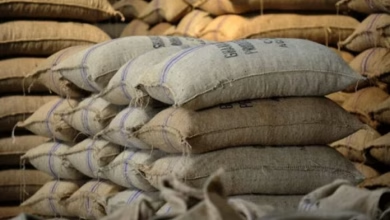UK Warns Ghana of Massive $2 Billion Loss to Illegal Mining

- $2 billion annual loss to gold smuggling
- UK government raises alarm
- UKGGP collaborates on mining reforms
- Ghana risks severe consequences
The UK government has sounded the alarm over the alarming rate of gold smuggling in Ghana, which is estimated to cost the country a staggering $2 billion annually in lost tax revenue. This illicit activity is perpetuated through unregulated mining practices and illegal small-scale mining, commonly referred to as galamsey. In 2022, a whopping 60 tonnes of gold were smuggled out of Ghana, exacerbating the financial losses.
Chris Aston, team lead for the UK Ghana Gold Programme (UKGGP), emphasized the urgent need for Ghanaian authorities to address this issue. Aston warned that if left unchecked, the consequences for Ghana’s economy would be devastating. He stressed that reversing this trend is critical for safeguarding Ghana’s economic future.
The UK government’s concerns are echoed by growing national and international calls for reforms in Ghana’s mining sector. Specifically, there is a need to curb illegal activities and improve regulatory oversight. Aston noted that the sector is vulnerable to exploitation by organized crime groups, with gold smuggling having more than doubled.
The UK-Ghana Gold Programme (UKGGP) is working closely with the Government of Ghana to regulate artisanal small-scale gold mining and enforce existing regulations. This collaboration aims to unlock the full potential of artisanal mining, benefiting Ghanaians while preventing environmental degradation and safeguarding miners’ health and well-being.
Security analyst Prof. Emmanuel Kwesi Aning described Ghana’s situation as a ‘GalamState’, where the failure to clamp down on illegal mining has led to widespread corruption and impunity. Prof. Aning warned that Ghana may soon face severe security, environmental, and economic consequences due to galamsey activities.
Galamsey’s impact extends beyond economic losses, causing ecological damage and health risks for nearby communities. The use of harmful chemicals contaminates water sources, threatening livelihoods. Weak laws and corrupt officials enable these illegal activities to thrive.
To combat galamsey, it is essential to address these underlying factors and implement effective solutions. The UK government’s concerns and the UKGGP’s efforts underscore the need for urgent action to protect Ghana’s economy and environment.
Reforms in the mining sector must prioritize regulatory oversight and enforcement. By disrupting illegal mining and illicit financial inflows, Ghana can reclaim its lost revenue and ensure a sustainable future for its citizens.
Ultimately, combating galamsey requires a multi-faceted approach, involving government, civil society, and international cooperation. By working together, Ghana can overcome this challenge and unlock the full potential of its mining sector.






